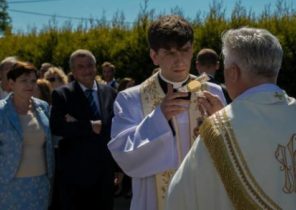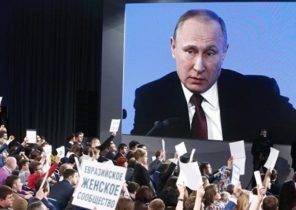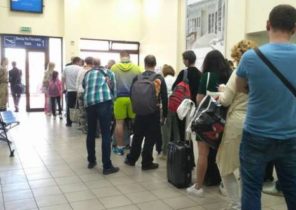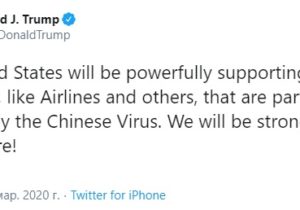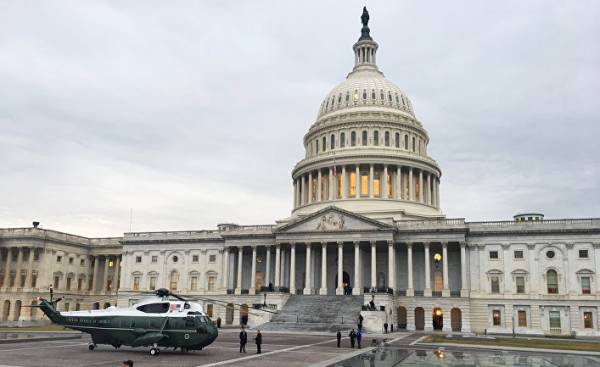
Swept the Washington anti-Russian hysteria must be stopped before she caused serious and irreparable damage to American domestic politics and reputation of the United States in the international arena. Even last year’s meeting the chief Rabbi of Russia and worked in the Trump Organization lawyer (today, he occupies a high position in the White house, but has no relation to foreign policy) presented as some kind of sinister spy meeting. This indicates that the hysterical rhetoric is getting out of control.
Classes on international relations I was always taught that the job of diplomats is to hold as many meetings with representatives of the political establishment of the host country on a wide range of issues. Diplomats need to understand key trends in the legislature and closely analyze what you can do in the political sphere are promising candidates for high office, and how it will affect their home country. There should be nothing inappropriate and indecent that the us officials, lawmakers and experts to exchange views with the ambassadors and diplomats from other countries, be they allies, partners or even rivals. This fully applies to Russian Ambassador to the USA Sergey Kislyak. Attempts to present the usual diplomatic activities in the form of some dastardly plot threatening to close the few active channels of communication that still remain between the US and Russia, which continues to be a key player on the world stage. Moreover, the game catch-up, when senators and other leaders vying to boast that never met with Kislyak, exposing it as a sign of his ideological purity (and then be in an awkward position, when the archives appear photographic evidence of their meetings with the Russian Ambassador), looks very stupid and vulgar.
Former us ambassadors to Russia Michael McFaul and John Byerly (John Beyrle), who worked as the main messengers of America and the personal representatives of the President in the years of the Obama administration, aggressively and consistently calling for prudence in these matters. They warn (maybe in vain) that the long-term interests of the United States hurt the claims that contacts between U.S. officials and Russian diplomats is an act of treachery or crime. Russia remains a potent nuclear Arsenal, and it is an important player in Eurasia. Attempts to establish channels of communication with the new administration and to identify possible areas of common interests and contradictions — this is quite common and justified diplomatic work.
If the Russian wasn’t trying to play some kind of role in the 2016 elections, and if the victory was won by Hillary Clinton, this problem would not have arisen. But in this situation it is necessary to completely depoliticize any investigation into the incident last year. The investigation should be removed from the sphere of politics and in any case cannot be considered as a tool to change the results of elections in 2016, or cancel an appointment in trump’s office disagrees with the party of the minority. I think we need a impartial and non-partisan Commission of experts to analyse what happened with regard to all the circumstances, and not to turn this into a long lawsuit; and to perform a much more important task — to prevent new cases of this kind. It may be useful to organize the new standards within the scope of such a Commission given the fact that the media in the world today is more globalized, and political consulting firms are much more active. These standards will determine which contacts between American officials and foreigners are valid and which are not. When such Commission is established, policymakers should take a step back and not interfere with her work.
A useful example in this respect is the Commission on 11 September. After the catastrophic terrorist attacks before it was tasked to understand what happened, not to act as Prosecutor. Meticulous work on the elucidation of the causes of the attacks, and that led to the circumstances helped to sweep aside the many conspiracy theories that began to circulate after September 11, and to put an end to insinuations from both sides, which were designed to blame the Clinton administration or to challenge the legitimacy of the Bush administration. The work of the Commission helped to identify the mistakes made as under Clinton, and under Bush, and focus on patching discovered vulnerabilities, in order to prevent the recurrence of large and destructive terrorist attacks on American soil.
But we have to admit that the damage was still done. The current political climate that ensures that any pragmatic approach to the resolution of disputes between the US and Russia is impossible. It seems that Russian-American relations will be very difficult to pull out of the pit in which they find themselves. Accordingly, those people in Russia who carefully try to find possible areas of cooperation between Moscow and Washington now see their position compromised.
In recent years, many analysts warned of a creeping strategic partnership between Moscow and Beijing, and that the rapprochement between Russia and China will create real problems of the United States. Despite all those stones and arrows, which Moscow allowed in our direction, the ability to convince the Kremlin to take an equidistant position between Washington and Beijing existed. But now this opportunity is fast disappearing. To return Russian-American relations into some semblance of a normal channel it wasn’t easy, but now it’s almost impossible.
Nikolas K. Gvosdev is a contributing editor of the National Interest, senior fellow at the research Institute of foreign policy (Foreign Policy Research Institute).
Set out in article views this is a personal view of the author.
